If you’ve been hearing all about gut health lately, you’re not alone. It seems like everyone is talking about the microbiome and how the foods we eat affect not just our digestion but our overall health.
The good news is that there’s a lot you can do to support a healthy gut, starting with what you put on your plate. But before diving into gut-friendly foods, let’s talk about the worst foods for your gut – the ones that might wreak havoc on your digestive system, gut microbes, and even your mood and energy levels.
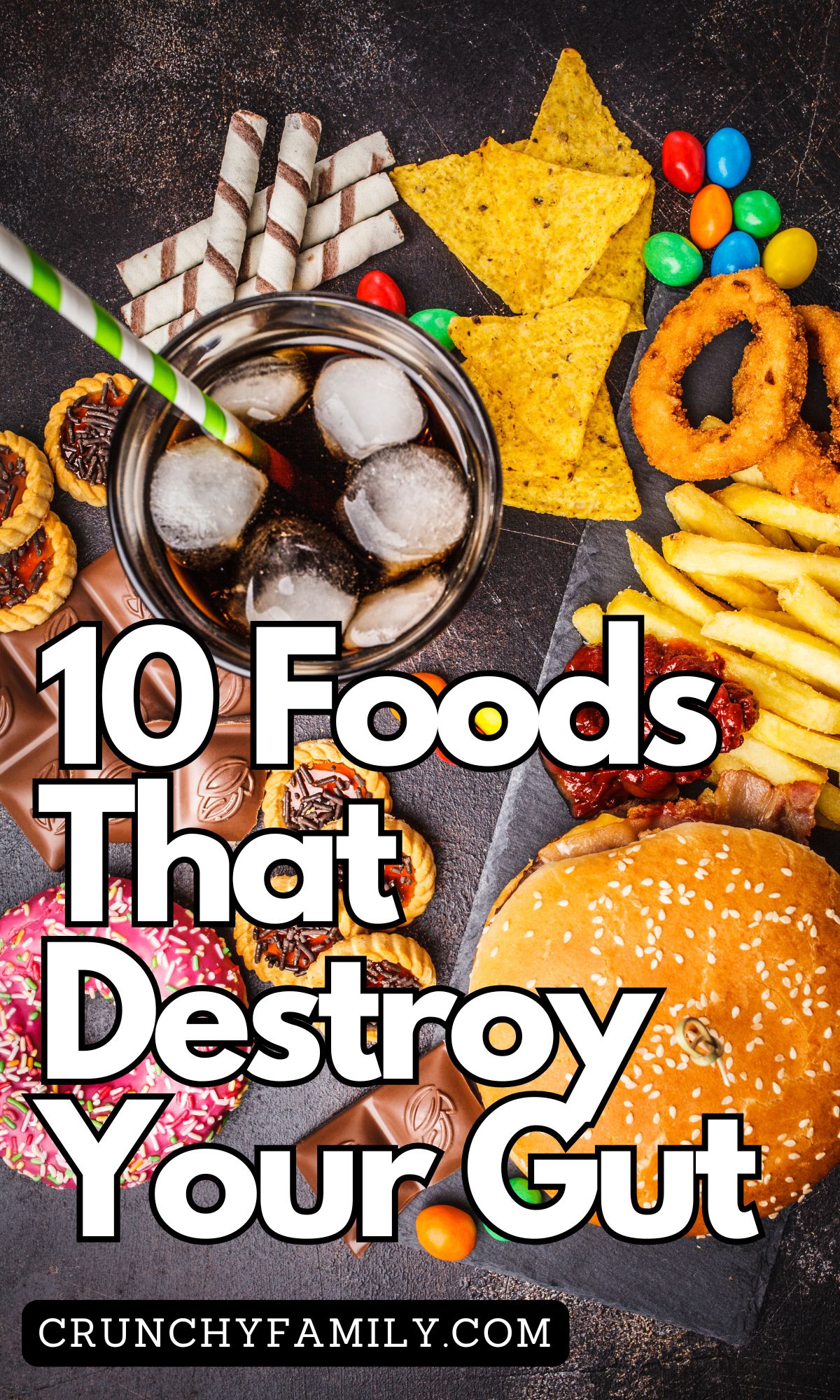
Understanding the connection between your gut and the rest of your body is essential. A disrupted gut can lead to issues like chronic inflammation, fatigue, and even brain fog. Some foods might feel harmless in the moment but can negatively affect your gut barrier, leading to more significant health conditions like leaky gut or digestive problems.
So, let’s take a closer look at the culprits that might be making your stomach—and your life—more difficult.
10 Worst Foods for Gut Health
When it comes to your gut, the wrong foods can wreak havoc on your digestive system, leaving you with discomfort, fatigue, and even long-term health issues. The good news is that by knowing what to avoid, you can make smarter choices to support a healthy gut microbiome and feel your best. Let’s dive into the worst offenders and how they could be sabotaging your digestive health
1. Ultra-Processed Foods
Ultra-processed foods are often packed with preservatives, additives, and excess sugar, all of which feed harmful bacteria in your gut while starving your healthy gut microbiota. Over time, this can disturb your gut lining and lead to chronic inflammation or even weight gain. Soft drinks, sugary snacks, and overly processed snacks are common examples of foods that can take a toll on your digestive tract.
In addition to harming your gut microbiota, ultra-processed foods often lack the dietary fibers your digestive system needs to function properly. These foods can also contribute to insulin resistance, making them a double threat to your health.
Tip: Swap out those ultra-processed foods for whole foods like fruits, veggies, and nuts to support good gut bacteria.
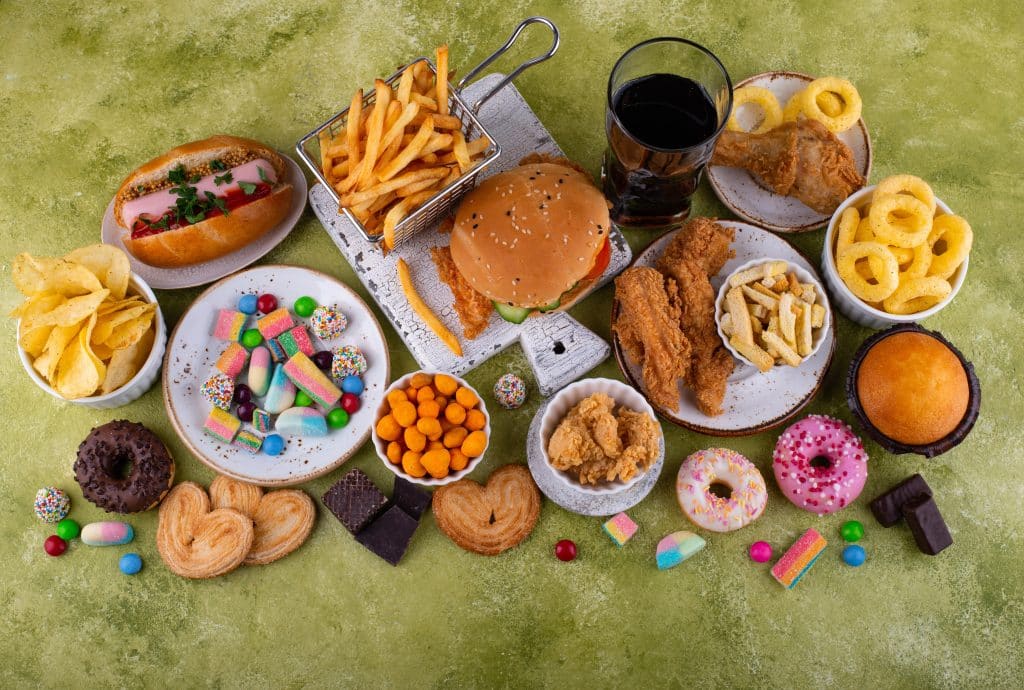
2. Fried Foods
Fried foods may be delicious, but they’re some of the worst foods for your gut. Loaded with unhealthy fats, they can slow down digestion, upset your stomach, and contribute to digestive problems like gas and bloating. Consistently eating fried foods may also increase the risk of heart disease and disrupt the balance of beneficial bacteria in your gut.
Fried foods can slow down the movement of food through your GI tract, leading to constipation or uncomfortable fullness. They also often contain trans fats, which are linked to chronic inflammation and other health issues.
Tip: Save fried treats for special occasions and experiment with air-frying or baking for a healthier crunch.
3. High-Sugar Foods and Sugary Drinks
Excess sugar and sugar-sweetened beverages like soda and fruit juices fuel harmful bacteria in the gut, throwing off the balance of good gut bacteria. Over time, this imbalance can lead to digestive symptoms and even chronic inflammation in your gastrointestinal tract.
Sugar doesn’t just feed harmful bacteria in your gut – it can also reduce the diversity of your gut microbes, which is key for maintaining a healthy gut barrier. Excess sugar has been linked to conditions like leaky gut and chronic inflammation over time.
Tip: When those sugar cravings strike, opt for naturally sweet snacks like berries or a square of dark chocolate instead.

4. Artificial Sweeteners
While they might seem like a good idea for cutting calories, artificial sweeteners such as aspartame and sucralose can have a negative effect on your gut microbiota. Recent studies suggest they may disrupt the balance of healthy bacteria, leading to digestive problems and even affecting bowel habits.
Artificial sweeteners may alter the species of bacteria in your gut, favoring those associated with digestive problems and weight gain. Some studies have also suggested they might increase cravings for sugary foods, creating a vicious cycle.
Tip: Use natural sweeteners like honey or maple syrup instead of artificial ones.
5. Red Meat
Red meat, especially fatty cuts, can cause issues for your digestive health if consumed in excess. A diet high in red meat has been linked to a less diverse gut microbiome and increased risk of colorectal cancer. Processed meats like bacon and sausage are even worse due to added sodium and preservatives.
Eating too much red meat can increase levels of harmful compounds like TMAO (trimethylamine N-oxide), which are linked to heart disease and poor gut health. The lack of prebiotic fibers in red meat-heavy diets can also reduce beneficial bacteria.
Tip: Balance your plate with lean proteins like chicken, fish, or plant-based options, and enjoy red meat sparingly.
6. Alcohol
Excessive alcohol consumption is another gut wrecker. It can damage the gut lining, promote harmful bacteria growth, and lead to digestive symptoms like bloating and stomach pain. Over time, this can even impact your immune system and contribute to gut health issues like leaky gut.
Alcohol can impair your gut’s ability to absorb essential nutrients, which may weaken your immune system over time. Regular consumption can also disturb the balance between good and bad bacteria, leaving your gut more vulnerable to harmful microbes.
Tip: Try alcohol-free mocktails for a refreshing, gut-friendly drink alternative.
7. High-Fat Dairy Products
While some dairy products like yogurt can support a healthy gut microbiome, high-fat options such as heavy cream and full-fat cheese might not be as friendly to your digestion. For those with lactose intolerance, these foods can also cause significant digestive discomfort.
High-fat dairy can increase inflammation in the digestive tract, especially if you already suffer from lactose intolerance. Over time, these foods may also reduce levels of healthy bacteria, making your gut less efficient.
Tip: Opt for probiotic-rich dairy products like kefir or lactose-free alternatives to keep your gut happy.
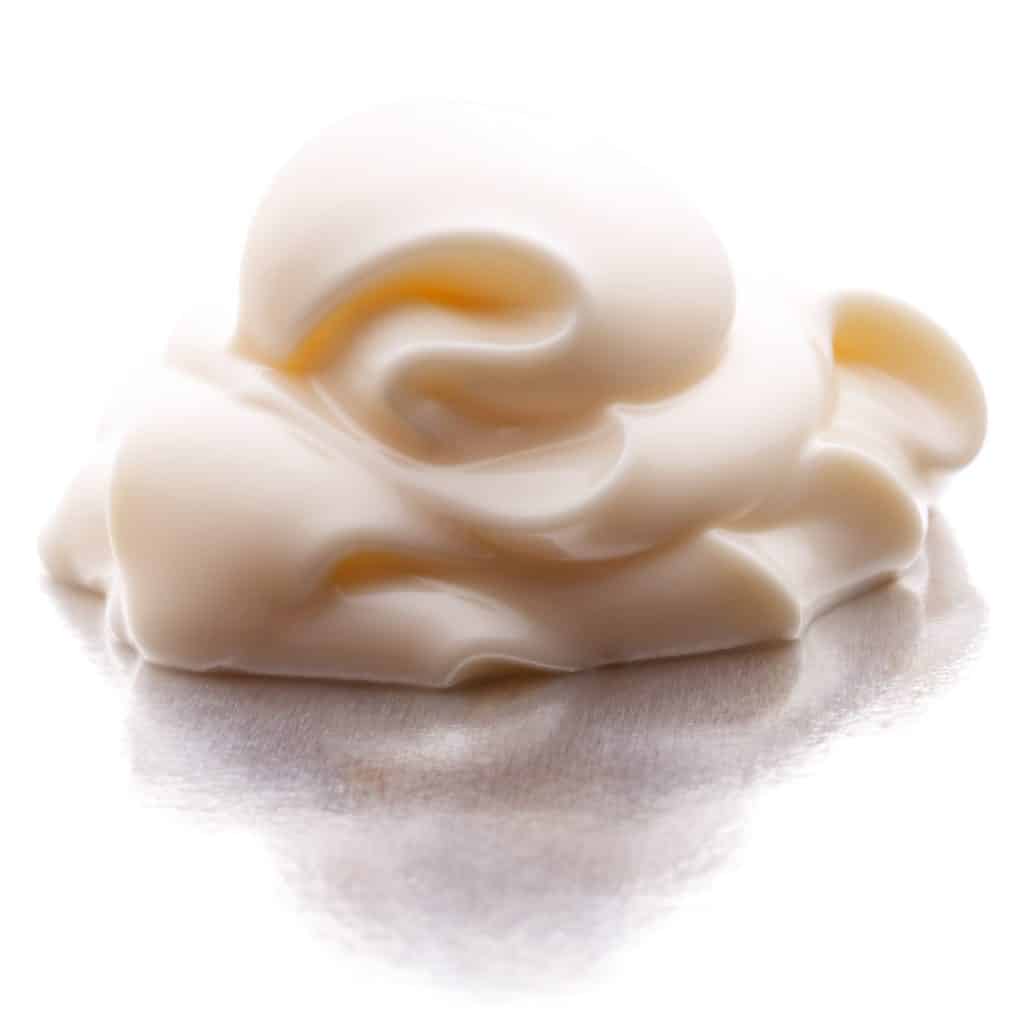
8. Cruciferous Vegetables
This one might surprise you. While healthy and nutrient-dense, cruciferous vegetables like broccoli, cauliflower, and cabbage can cause gas and bloating for some people due to their fiber content and fermentation process in the large intestine.
While they’re rich in nutrients, the high sulfur content in cruciferous vegetables can be tough on your gut, leading to smelly gas or bloating. Cooking them thoroughly can help break down some of these sulfur compounds.
Tip: Cook these veggies instead of eating them raw to make them gentler on your digestive system.
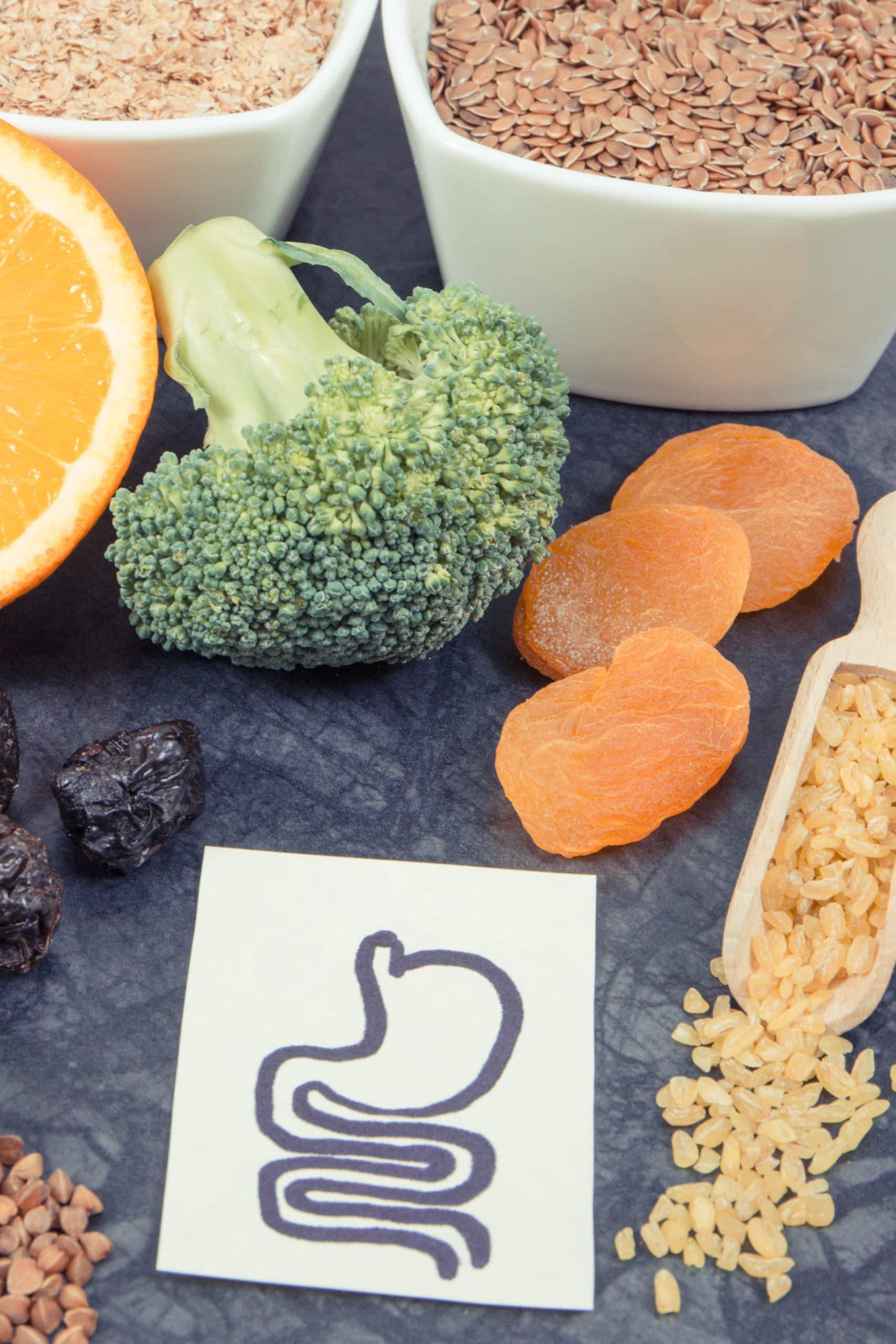
9. Spicy Foods
Love the heat? Unfortunately, spicy foods containing capsaicin can irritate the gut lining, especially for people with conditions like irritable bowel syndrome or acid reflux. If you notice stomach pain or discomfort after eating spicy food, it might be time to dial it back.
Capsaicin, the active ingredient in chili peppers, can speed up food’s transit time through your GI tract, sometimes leading to diarrhea. Spicy foods can also worsen existing conditions like gastritis or inflammatory bowel disease.
Tip: Gradually reduce the spice level in your meals to find a balance that works for your digestive health.
10. Citrus Fruits
While citrus fruits are packed with nutritional value, they can be a trigger for those with sensitive stomachs or conditions like gastroesophageal reflux disease. The acidity of citrus fruits can lead to irritation in the GI tract, causing discomfort and digestive symptoms.
Beyond their acidity, citrus fruits can sometimes interfere with your gut’s natural pH balance, making it harder for healthy bacteria to thrive. People with conditions like ulcerative colitis or Crohn’s disease may find these especially irritating.
By understanding the impact these foods can have on your digestive system, you can make adjustments that support your gut health while still enjoying a balanced diet.
Tip: Swap out citrus fruits for less acidic options like bananas or melons.
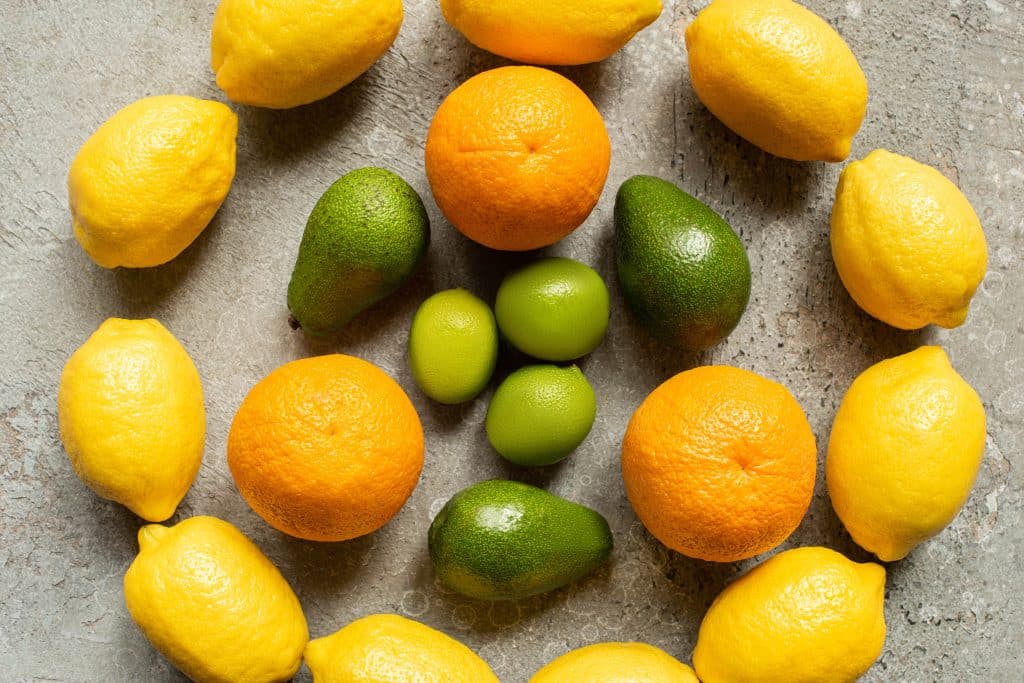
It’s important to remember that everyone’s gut is unique, and what affects one person might not bother another. Some foods on this list, like cruciferous vegetables or citrus fruits, may only cause digestive symptoms when eaten in large amounts, while others, such as ultra-processed foods and artificial sweeteners, can disrupt the gut microbiota more broadly.
A balanced diet that includes prebiotic fibers, whole grains, and foods that encourage the growth of healthy gut bacteria is the best way to maintain a resilient gut barrier and support your overall health. By being mindful of these common culprits, you can create a diet that keeps your gastrointestinal tract happy and your body thriving.
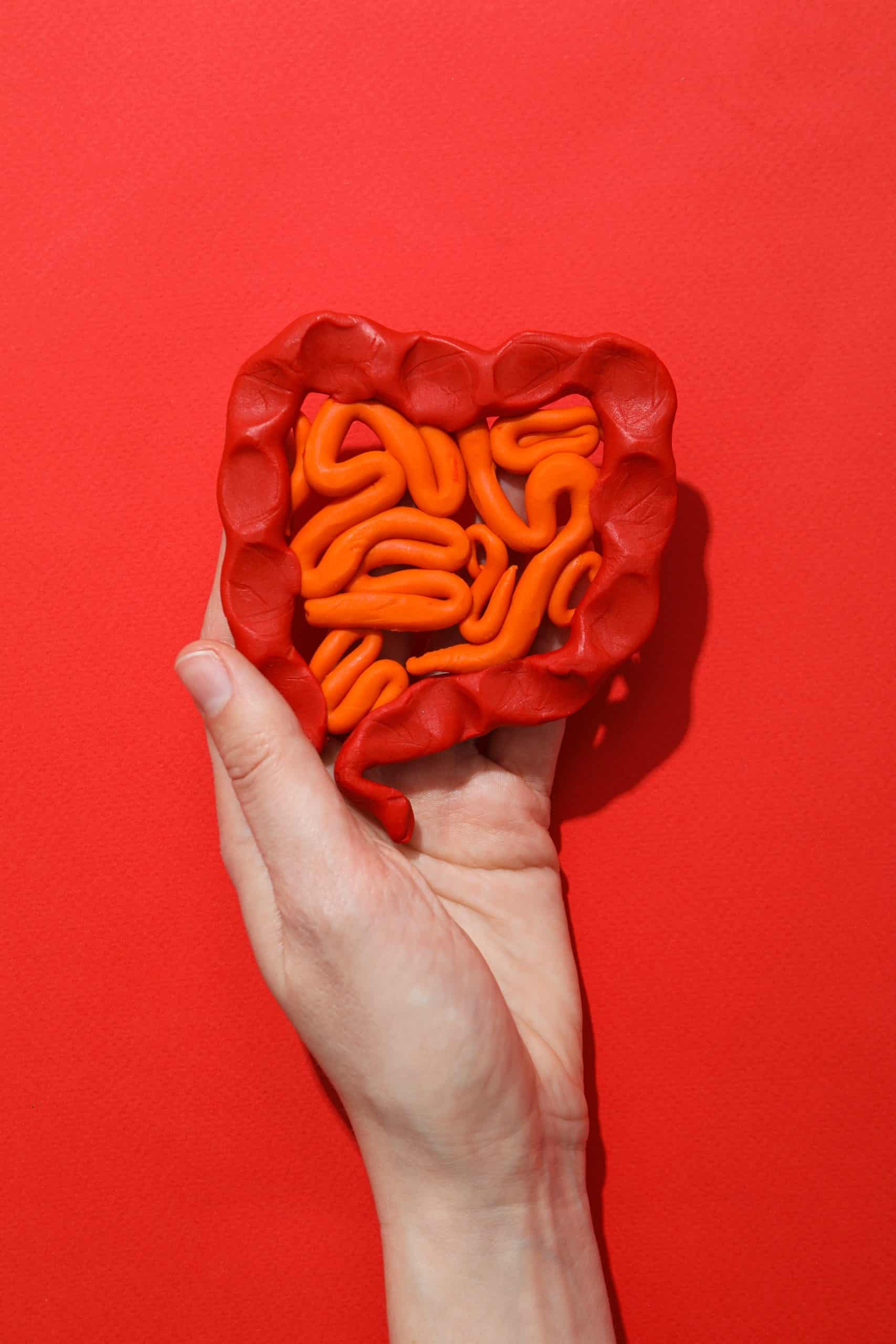
By identifying and reducing these gut-damaging foods, you can take a significant step toward better digestive health and overall well-being. While everyone’s gut is different, paying attention to how your body reacts to certain foods can help you create a nutritionally balanced diet that supports both your gut and your mind.
The best way to start? Focus on whole, minimally processed foods and listen to your gut — it knows best!

If you found this post helpful, please share it with friends or family who might benefit from learning about gut health! Spreading the word can help others make more informed choices for their overall health and well-being.
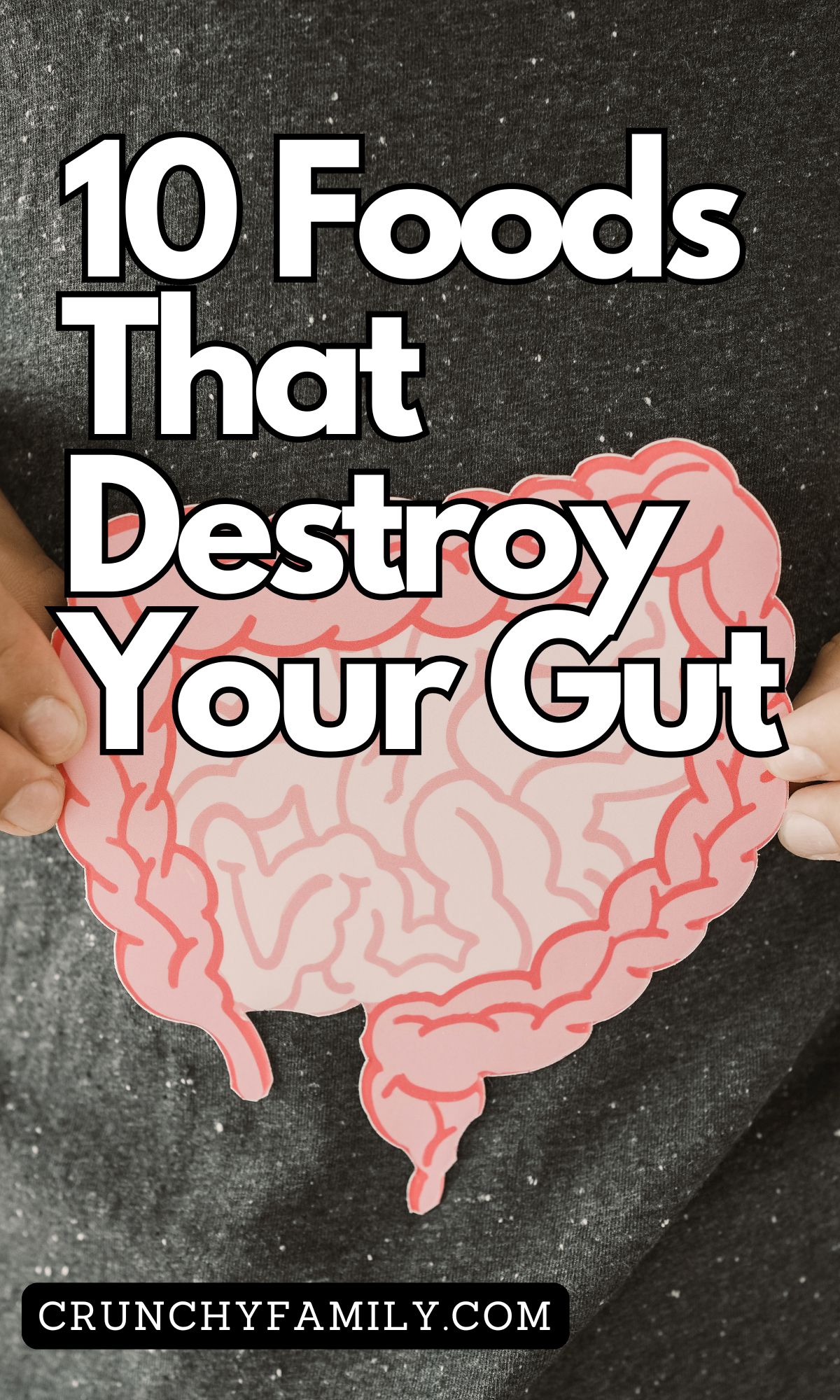
3 thoughts on “10 Foods That Destroy Your Gut”